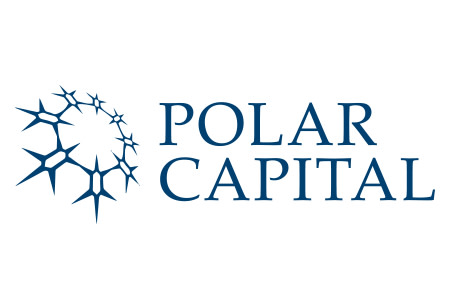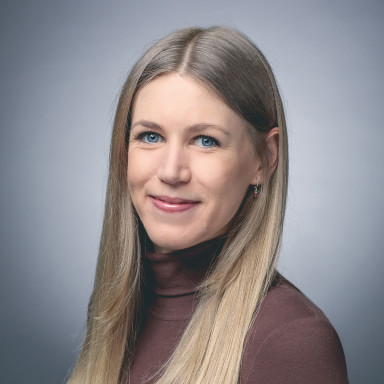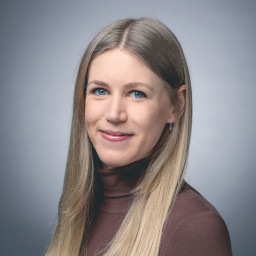Nick Davis has a long track record in European income investing and believes the power of compounding dividends is key to long-term success
This fund focuses on investing in undervalued companies that have the potential to deliver attractive returns and grow their dividends
Since launch in 2015, the fund has paid an attractive income to investors. Though yields and income change over time and aren't guaranteed
The fund is on our Wealth Shortlist of funds chosen by our analysts for their long-term performance potential
How it fits in a portfolio
The Polar Capital European ex-UK Income fund aims to deliver an income greater than the MSCI Europe ex-UK index. It also aims to grow investors' money over the long term, with less ups and downs (volatility) along the way.
The fund invests in larger European companies that are undervalued. These are companies that might be out of favour or where the manager doesn’t feel the share price matches the company’s longer-term potential but has the potential to bounce back. Overall, the manager takes a more conservative approach, which means the fund could provide greater stability than others during tougher times.
This makes the fund different from other European funds that focus on companies with high-growth expectations. The fund could be a good addition to an investment portfolio focused on income or provide some diversification to other European or global funds focused on growth.
Manager
Lead manager Nick Davis has 17 years' experience in the investment industry and is a contrarian at heart. He began his fund management career in January 2011 at Columbia Threadneedle (CT). During his time at CT, he ran the Threadneedle Pan European Equity Dividend fund and was deputy manager of the Threadneedle European Select fund.
Davis joined Polar Capital in September 2014 and has managed the European ex-UK Income fund since it launched in June 2015. He’s managed other European funds over this time, but his sole focus is now this fund.
Davis is supported by deputy manager Dan Tse who joined Polar Capital in June 2013. Tse has a technical background and is quantitatively focused, a skillset he uses to support Davis when it comes to building the fund. He's built a lot of the team's quantitative tools, and we believe his skills pair nicely with Davis’.
The final member of the team is Raniyah Qureshi. She joined Polar Capital in 2018 as an analyst and has covered various sectors over this time. She also sits on the Diversity & Inclusion and the Sustainable committees at Polar Capital.
Aside from his immediate team, Davis makes use of the wider resources at Polar Capital, including their centralised ESG (Environment, Social and Governance) team. While Davis has support from his immediate team and other individuals at Polar Capital, our conviction in this fund primarily lies with him.
Process
The fund aims to pay an income at least 10% higher than that of the MSCI Europe ex-UK index, alongside some capital growth over the long term. Davis looks for undervalued European companies that pay an income and have potential to improve over time. This investment style is known as value investing, though he also focuses on companies that could provide some stability during tougher times.
The manager focuses on companies that achieve at least a 10% annual total shareholder return, which includes dividend and earnings growth potential, over the medium term. Davis believes other investors underestimate the long-term potential of these companies.
The manager invests in companies that yield (a measure of income) at least 2.5% with the potential to be able to grow their dividends over time. He focuses on balance sheet strength and the competitive landscape. To do this he uses Porter's Five Forces – this helps to gain an understanding of competition, the threat of new entrants and substitutes, and the power of both suppliers and customers. To help limit volatility he considers how cash generative a business is, and how resilient they could be in a market downturn.
The fund invests in around 25-50 companies, with currently 33 in the fund. As a concentrated fund, each investment could have a big impact on performance, which increases risk. The managers also have the flexibility to use derivatives which can magnify any gains or losses and increases risk.
There are three key reasons why Davis would sell an investment. Firstly, if a company’s share price rises close to or above the team's target level, they'll re-evaluate its potential for future growth. Secondly, strong performance – as a company’s share price rises its yield reduces. When this happens, the manager may reduce investments in lower yielding shares and reinvest in higher-yielding opportunities. Finally, he’ll sell an investment if he no longer has as much conviction in the business.
Recent new investments in the fund include cosmetics company L’Oréal. Its share price fell in 2024 partly due to a weaker beauty market in China, which gave the managers the opportunity to invest at a lower share price. They believe L’Oréal still holds a competitive position in the global beauty market and that it will grow its share of the market in 2025.
The managers also invested in brewer Heineken, again after its share price fell. They believe it has earnings growth potential, party due to its strong balance sheet and growth in strong brands across the emerging markets.
Elsewhere, shares in Coca-Cola bottler Coca-Cola Europacific Partners were sold. The shares are currently listed in euros but will convert to sterling. In this instance, the company’s shares could eventually be listed on the UK’s FTSE stock market. While funds in the IA Europe ex UK sector, including this one, have flexibility to invest up to 5% in UK shares, Davis prefers to keep this fund’s remit focused on European listings. Prior to this though, the shares performed well and benefited the fund.
Culture
Polar Capital was founded in 2001 and prides itself on its collegiate investment culture. Each investment team has autonomy, which allows them to develop and apply their own investment process and philosophy, but with sufficient challenge and oversight.
The culture within the European team is strong and debate is encouraged. While Davis is the ultimate decision maker, he's supportive of the team challenging investment decisions to add rigour to the process.
The firm has a strong focus on shareholders' interests and ensures that fund managers are aligned accordingly and appropriately incentivised.
ESG Integration
Each investment team at Polar Capital has autonomy over its own investment strategy. This means they all take slightly different approaches to ESG integration, and some are more advanced than others. That said, the firm also makes third party ESG data and research available for all managers and all Polar Capital funds exclude companies involved in the production or marketing of controversial weapons.
In 2020, Alexander Macdonald was appointed Head of Sustainability. He coordinates the firm’s sustainability-related initiatives and helps the investment teams frame their thinking around ESG and incorporate ESG analysis in a robust way. His aim is also to further develop Polar Capital’s funds’ integration of ESG factors as well as enhancing their responsible investment and stewardship capabilities.
Polar Capital fund managers engage with the companies they invest in where they feel it will have a positive impact on company performance and enhance shareholder value. Fund managers are also responsible for voting, but their views are informed by third party proxy voting specialist Institutional Shareholder Services. A summary voting record is provided annually, but the full voting record is not provided. Overall, Polar Capital is less transparent on its ESG-related activities than some peers.
As at the end of November 2024 this fund invests 17.67% in companies involved with the extraction of oil, gas or coal. This could leave the fund vulnerable to fluctuations in commodity prices, regulatory changes aimed at reducing carbon emissions, and potential shifts in consumer preferences towards sustainable alternatives.
In a positive step though, Polar Capital has recently set a decarbonisation target and publicly pledged to achieve net zero across its operation emissions by 2050. This follows a period of positive engagement by HL’s ESG Analysts with the group.
Cost
This fund is available at an annual ongoing fund charge of 0.74%. This makes it one of the lowest-cost actively managed funds in the European sector available through HL. The HL platform fee of up to 0.45% per year also applies, apart from in the Junior ISA where there is no platform fee.
Please note the fund's charges are taken from capital rather than income. This increases the yield but reduces the potential for capital growth.
Performance
Since this fund launched in June 2015, it's delivered returns of 98.59%* compared with 113.56% for the average fund in the IA Europe ex UK sector. As always past performance isn’t a guide to future returns.
While the fund has delivered an attractive return over this time, it’s lagged the sector average partly as the manager's more value-focused style of investing has been out of favour for much of this time.
The aim of this fund isn’t only to beat its peers though – it also aims to be less volatile than the peer group and broader European market, as well as pay an attractive income. This is something it’s achieved, and the performance of the fund has been much smoother. Over the longer term, the fund has tended to lag a rising market but hold up better when markets are falling.
As an example of how the fund performs in different market conditions, it went through a more difficult period in 2019 and 2020. Growth-focused companies that Davis tends not to invest in, including those in the technology sector, did well which was a headwind for the fund. In 2022, the value style of investing returned to favour, and this helped performance.
Over the past year, the fund has grown 3.83%* compared with the IA Europe ex UK sector average return of 9.76%. While the fund held up well when the broader market fell during summer last year, it hasn’t kept up with the market rebound over that past month and during a period when more economically sensitive (cyclical) areas of the market have done well.
This is broadly how we’d expect the fund to perform, and we expect it to perform better when more defensive businesses do well and less cyclical businesses aren’t in favour.
The fund has continued to pay an attractive income to investors, as it has done over the long run. The fund yields 4.43% as at the end of December 2024, although income is not guaranteed, and yields aren't a reliable indicator of future income.
The defensive and conservative nature of the approach, the disciplined investment process and Davis' track record of European income investing gives us confidence in the fund's long-term prospects, and we expect it to be less volatile than its peers although of course there are no guarantees.
Jan 2020 To Jan 2021 | Jan 2021 To Jan 2022 | Jan 2022 To Jan 2023 | Jan 2023 To Jan 2024 | Jan 2024 To Jan 2025 | |
|---|---|---|---|---|---|
Polar Capital European Ex UK Income | -5.24 | 14.97 | 11.54 | 6.43 | 3.83 |
IA Europe Excluding UK | 9.94 | 10.40 | 2.78 | 7.47 | 9.76 |


